|
Apr 15, 1891
|
Born in Cambridge, England to Henry James and
Mary Ann Alberta (nee Saggers) Bennett
|
|
Nov 6, 1914
|
Attested into the 21st Battalion in
Kingston, Ontario
Ø Number 59056 (temporary number 394)
Ø Next of kin given as Sarah Kinnear, sister, 15 Victoria St.,
Cambridge, England
Ø Previous occupation given as Automobile Mechanic
Ø No previous military experience given
Ø Religion given as Church of England
Ø Assigned to “D” Company
o This was later reorganized into “B” Company
The battalion trained in the Kingston area
through the winter with headquarters in the Kingston Armouries
|
|
Jan 16, 1915
|
Granted extra pay as a Motor Car Driver
|
|
Feb 28, 1915
|
Extra pay as a driver ceased
|
|
May 6, 1915
|
Embarked the RMS Metagama in Montreal, Quebec
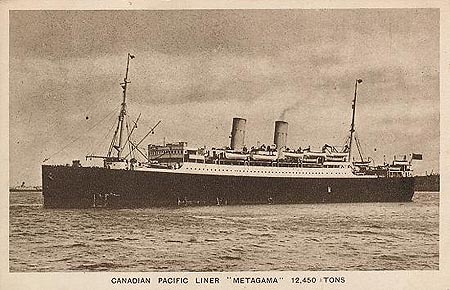
|
|
May 15, 1915
|
Disembarked in Devonport, England and the
battalion proceeded to the West Sandling Camp, near Hythe, Kent to continue training
|
|
Sep 1, 1915
|
Transferred to the CASC (Canadian Army Service
Corps) 2nd Division Supply Column and SOS (Struck Off Strength) the 21st
Battalion
Granted 1st Class Working Pay
|
|
Sep 9, 1915
|
Embarked the SS Santa Isobel in Avonmouth
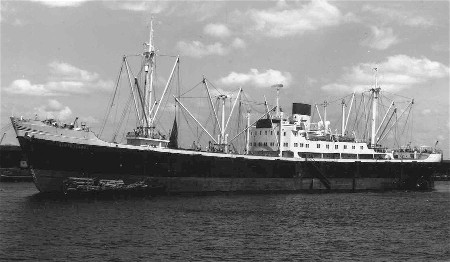
|
|
Sep 11, 1915
|
Disembarked in Havre, France
|
|
Dec 2, 1916
|
Attached to the Royal Flying Corps for duty with No.
10 Squadron as an observer
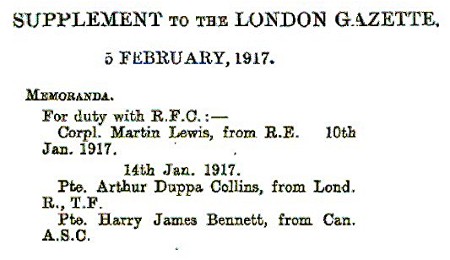
|
|
Jan 13, 1917
|
Transferred to England pending discharge in
order to be Commissioned
|
|
Jan 14, 1917
|
Posted to the CTD (Canadian Training Depot) in
Shorncliffe pending discharge
|
|
Jan 25, 1917
|
Discharged from the
CEF in England
Ø Rank on discharge
Private
Ø Reason for
discharge appointed to a Commission in the Imperial Army
Although the
discharge documents were signed on this date, they are noted as being effective January
13, 1917
|
|
|
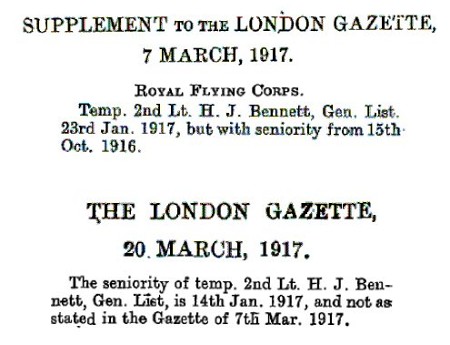
|
|
|
Harry Bennett was
subsequently Commissioned as a 2nd Lieutenant in the Royal Flying Corps and
sent to the Wireless and Observers School in Brooklands.
|
|
|
On graduating as an
Observer, he was posted to No. 2 Squadron operating from an airfield near Bethune, France
as an Observer in Armstrong Whitworth FK8 aircraft.
|
|
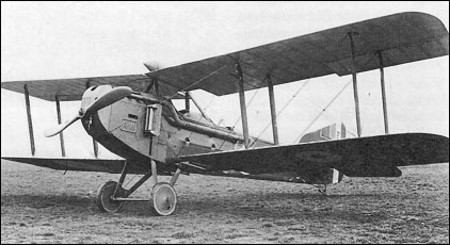
|
|
Sep 20, 1917
|
Transferred to the No. 12 Training Squadron at
Thetford, England to begin training as a pilot, first flying the Maurice Farman Shorthorn
MF 11 aircraft.
|
|
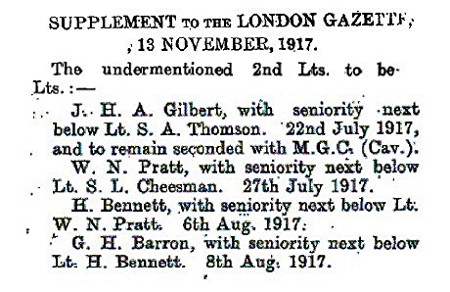
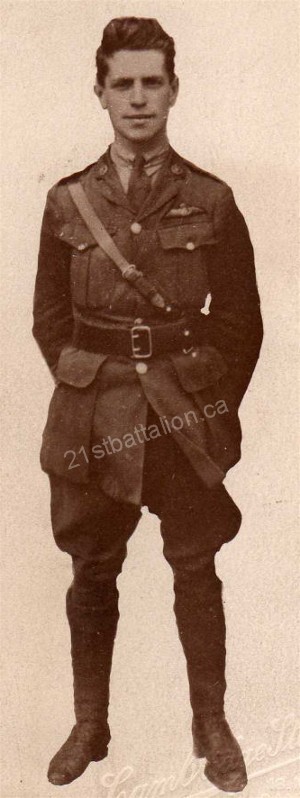
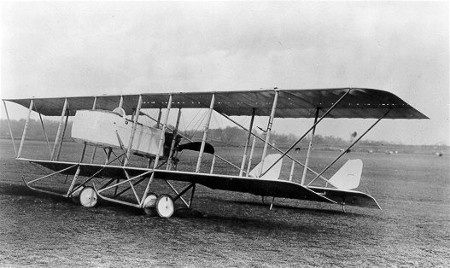
|
|
Sep 29, 1917
|
He flew his first solo flight after 4 hours of
instruction.
|
|
Oct 18, 1917
|
Transferred to No. 99 Training Squadron at
Lakedown to continue his training and learning how to fly the BE2e and Armstrong Whitworth
FK8 aircraft
|
|

|
|
Nov 26, 1917
|
He was slightly injured during a crash landing
and did not fly for 2 weeks
|
|
Jan 7, 1918
|
He crash landed an Armstrong Whitworth FK8
aircraft, again slightly injuring himself and he did not fly for 2 weeks
|
|
Feb 8, 1918
|
After accumulating 38 hours as a pilot, he was
granted leave to Canada
|
|
May 18, 1918
|
After returning to England from leave, he was
posted to No. 109 Squadron at Lakedown flying DH4 aircraft
|
|
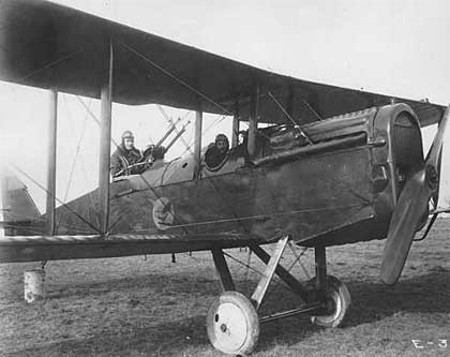
|
|
Jun 6, 1918
|
Lt Bennett crashed again, this time on take off
when his engine quit. He did not fly for
another week this time
|
|
Jun 17, 1918
|
Took his first training flight in a DH9 aircraft
|
|
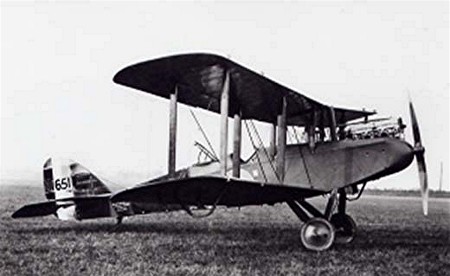
|
|
Jul 4, 1918
|
Proceeded to the School of Aerial Fighting at
Turnberry for a 1 week course in dog fighting and strafing
|
|
Jul 15, 1918
|
Proceeded to the School of Navigation and
Bomb-dropping near Stonehenge
|
|
Sep 2, 1918
|
109 Squadron was disbanded and he was
transferred to No. 49 Squadron at Beauvois, France flying DH9s
|
|
Sep 6, 1918
|
He conducted his first live bombing raid on the
St. Quentin train station, with his squadron dropping 22 112 pound bombs.
|
|
Sep 13, 1918
|
He conducted his 2nd bombing run on
Somain, France where the squadron dropped 112 pound bombs on the rail junction
|
|
Sep 16, 1918
|
On his 3rd bombing run, the squadron
attacked the rail junction at Orchies, France, south-east of Lille. His logbook notes that one of their escort
aircraft from No. 62 Squadron was shot down by the Germans
|
|
Sep 24, 1918
|
While flying a DH 9 bomber aircraft near Lille,
France, with the 49th Squadron, Royal Flying Corps, his aircraft was shot down
and crashed in flames. Lieut Bennett died of
his wounds and was buried by the Germans in the Dechy Communal Cemetery, German Extension,
German grave number 315. It was initially
thought that he had been taken prisoner, but he was later confirmed to have died on this
date. His Observer, 2nd Lt. R.H.
Armstrong survived the wreckage and was taken prisoner.
After the war ended, his remains were exhumed
and reburied in the Cabaret-Rouge British Cemetery, Souchez, France
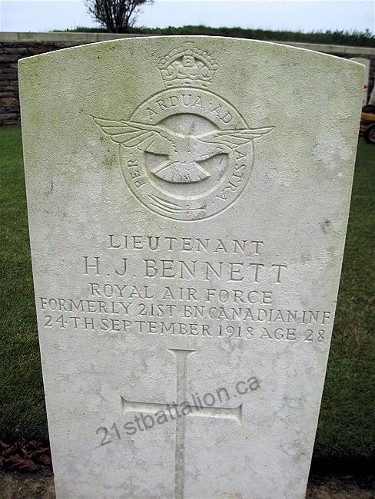
Following the war the 1914-15 Star, British War
Medal, Victory Medal, Plaque (Dead Man’s Penny), Scroll and Memorial Cross were sent
to the family by the British Air Ministry
I would like to thank the webmaster at http://www.airwar1.org.uk/ and Mr. Ian Bennett for contributions and
permission to reproduce material.
|
|